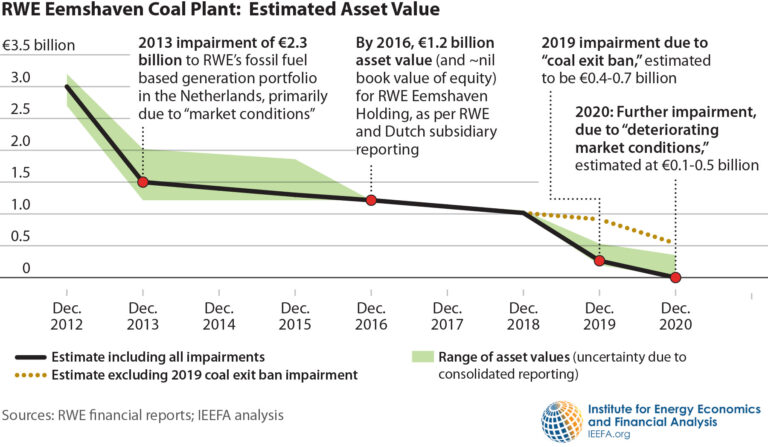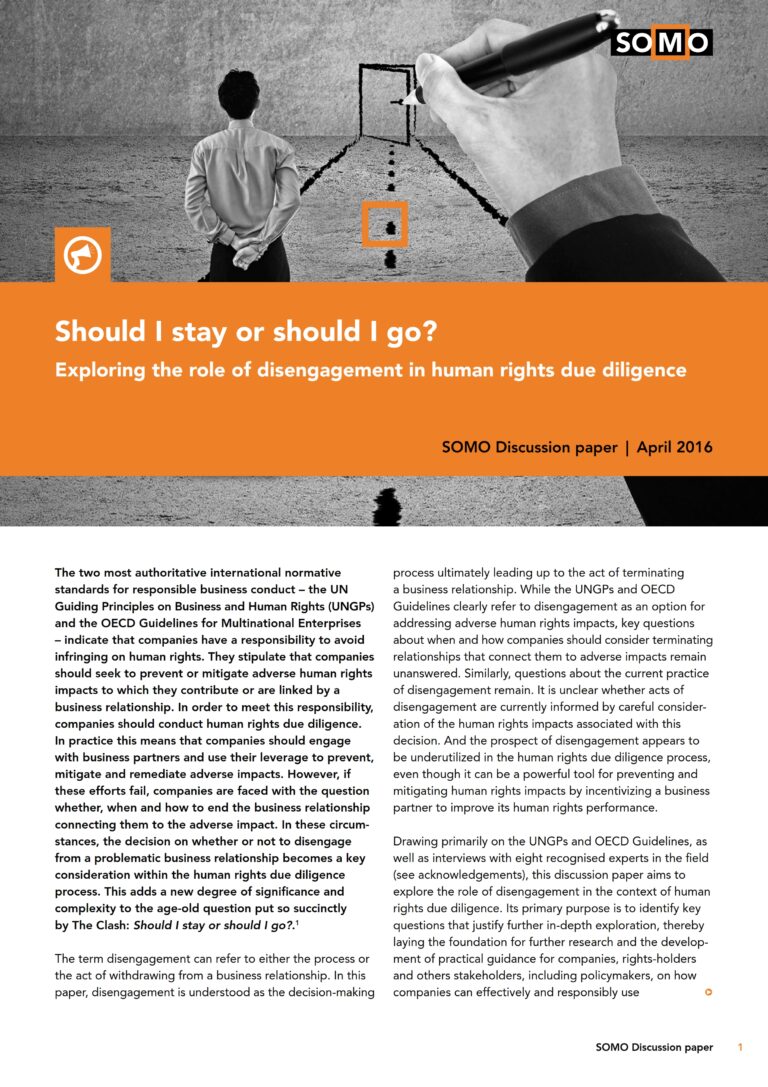
Responsible disengagement from coal as part of a just transition
Exploring due diligence, disengagement and contribution to grave human rights violations associated with coal mining in Cesar Department, Colombia
This paper considers “responsible disengagement” and “just transition” in the context of the Cesar coal mining region in Colombia, in which serious and unremediated human rights violations are intertwined with dependency on mining as a livelihood for entire communities. In Cesar and similar contexts, what are the roles and responsibilities of mining companies when disengaging? What are the responsibilities and expectations of power companies that have profited from Cesar’s coal mines for decades? The answers to these complex questions will have major implications for workers, communities, companies and governments around the world.
The Cesar region in Colombia has been the site of severe human rights violations, including the forced displacement of communities for the development of coal mines by paramilitary groups in the 1990s and 2000s. As the paramilitaries committed these violations, two multinational mining companies – Drummond and Prodeco/Glencore – initiated and expanded their operations. SOMO’s analysis of the OECD Guidelines as applied to this case leads to the conclusion that these companies are “contributing” to these ongoing impacts.
Several European energy companies have made significant and repeated purchases of coal from Cesar mines to generate electricity in their power plants. SOMO contends that the relationship between these companies and the forced displacements has shifted from being initially “directly linked” through their relationship with Drummond and Prodeco/Glencore to “contributing”.
Do you need more information?
-

Joseph Wilde-Ramsing
Advocacy Director
Publication
Related content
-
 Research undermines billion euro “compensation” claims by German energy companies for Dutch coal phase-outPosted in category:News
Research undermines billion euro “compensation” claims by German energy companies for Dutch coal phase-outPosted in category:News Bart-Jaap VerbeekPublished on:
Bart-Jaap VerbeekPublished on: -
Responsible disengagement in the time of corona Published on:
 Joseph Wilde-RamsingPosted in category:Publication
Joseph Wilde-RamsingPosted in category:Publication Joseph Wilde-Ramsing
Joseph Wilde-Ramsing -
 Corona crisis lays bare the need for responsible conduct in dealing with business relationshipsPosted in category:News
Corona crisis lays bare the need for responsible conduct in dealing with business relationshipsPosted in category:News Joseph Wilde-RamsingPublished on:
Joseph Wilde-RamsingPublished on: -

-
Should I stay or should I go? Published on:
 Joseph Wilde-RamsingPosted in category:Publication
Joseph Wilde-RamsingPosted in category:Publication Joseph Wilde-Ramsing
Joseph Wilde-Ramsing

